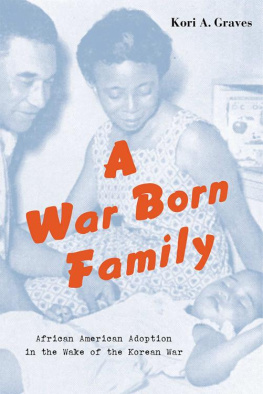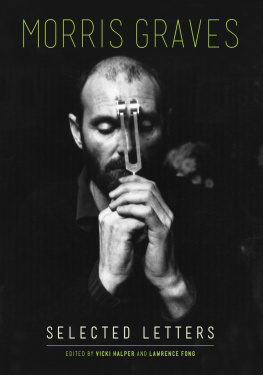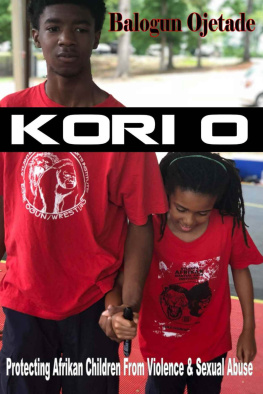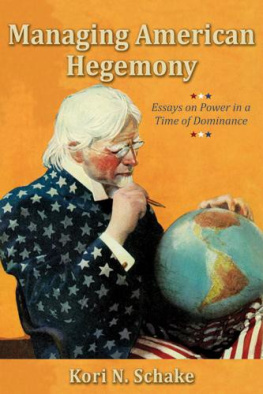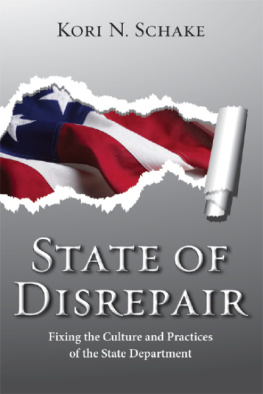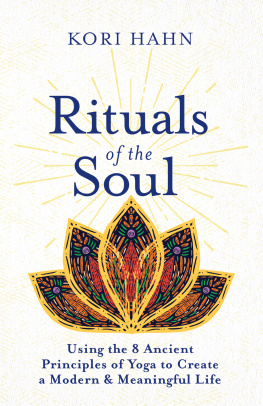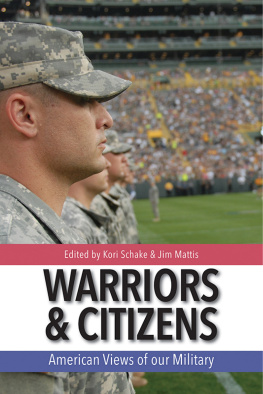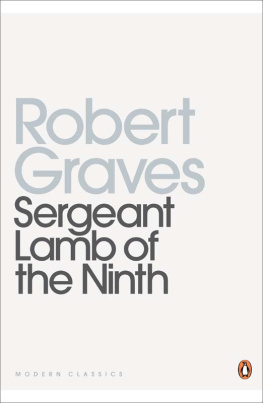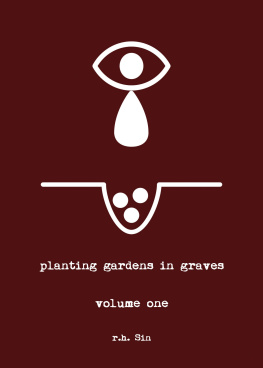Kori A. Graves - A War Born Family
Here you can read online Kori A. Graves - A War Born Family full text of the book (entire story) in english for free. Download pdf and epub, get meaning, cover and reviews about this ebook. year: 2020, publisher: NYU Press, genre: Politics. Description of the work, (preface) as well as reviews are available. Best literature library LitArk.com created for fans of good reading and offers a wide selection of genres:
Romance novel
Science fiction
Adventure
Detective
Science
History
Home and family
Prose
Art
Politics
Computer
Non-fiction
Religion
Business
Children
Humor
Choose a favorite category and find really read worthwhile books. Enjoy immersion in the world of imagination, feel the emotions of the characters or learn something new for yourself, make an fascinating discovery.
- Book:A War Born Family
- Author:
- Publisher:NYU Press
- Genre:
- Year:2020
- Rating:4 / 5
- Favourites:Add to favourites
- Your mark:
- 80
- 1
- 2
- 3
- 4
- 5
A War Born Family: summary, description and annotation
We offer to read an annotation, description, summary or preface (depends on what the author of the book "A War Born Family" wrote himself). If you haven't found the necessary information about the book — write in the comments, we will try to find it.
A War Born Family — read online for free the complete book (whole text) full work
Below is the text of the book, divided by pages. System saving the place of the last page read, allows you to conveniently read the book "A War Born Family" online for free, without having to search again every time where you left off. Put a bookmark, and you can go to the page where you finished reading at any time.
Font size:
Interval:
Bookmark:
Kori A. Graves

NEW YORK UNIVERSITY PRESS
New York
NEW YORK UNIVERSITY PRESS
New York
www.nyupress.org
2020 by New York University
All rights reserved
A portion of chapter 5 was previously published as Graves, Kori A., Amerasian Children, Hybrid Superiority, and Pearl S. Bucks Transracial and Transnational Adoption Activism in Pennsylvania Magazine of History and Biography 143, no. 2 (2019): 177209.
References to Internet websites (URLs) were accurate at the time of writing. Neither the author nor New York University Press is responsible for URLs that may have expired or changed since the manuscript was prepared.
Library of Congress Cataloging-in-Publication Data Names: Graves, Kori A., author.
Title: A war born family : African American adoption in the wake of the Korean War / Kori A. Graves.
Description: New York : New York University Press | Includes bibliographical references and index.
Identifiers: LCCN 2019008917 | ISBN 9781479872329 (cl : alk. paper) Subjects: LCSH: Interracial adoptionUnited StatesHistory20th century. | Intercountry adoptionUnited StatesHistory20th century. | Intercountry adoptionKorea (South)History20th century. | Racially mixed childrenKorea (South) | African American parents. | African American families. | Korean War, 1950-1953Children.
Classification: LCC HV875.64 .G73 2019 | DDC 362.734089/05960730957dc23
LC record available at https://lccn.loc.gov/2019008917
New York University Press books are printed on acid-free paper, and their binding materials are chosen for strength and durability. We strive to use environmentally responsible suppliers and materials to the greatest extent possible in publishing our books.
Manufactured in the United States of America 10 9 8 7 6 5 4 3 2 1
Also available as an ebook
When the African American magazine Ebony published How to Adopt Korean Babies in September 1955, its descriptions of the Korean black children in need of adoptive families caught the attention of many of the magazines readers and child welfare officials throughout the United States. Calling them the least loved boys and girls in Korea, the article suggested that Korean black children might not survive if they remained in that nation. Although all Koreans experienced extreme privations as a result of the Korean War (19501953), mixed-race children and their mothers suffered additional hardships. Many Koreans considered racial purity to be an essential aspect of their national identity, and they ostracized children fathered by white or black American soldiers. Mixed-race children were also stateless because they could not claim membership in the patrilineal family systems that defined citizenship and belonging in Korea. These circumstances led Ebonys editor and staff to encourage the magazines readers to learn more about the nascent Korean adoption process to determine whether they could adopt one of the estimated 300 Korean black children available to qualified American families virtually for the asking.
How to Adopt Korean Babies was not the first time Ebony had attempted to inspire members of its largely African American audience to become adoptive parents. Since the late 1940s, the magazine had published articles telling readers why they should and how they could adopt children in the United States and mixed-race children of African American soldiers born in countries throughout Western Europe and in Japan. Articles like How to Adopt Korean Babies also appeared in African American magazines and newspapers across the country. They caused an untold number of people to adopt informally or work with public child welfare organizations and private adoption agencies to complete formal, legal adoptions. However, in the early 1950s, African Americans faced barriers to formal adoption because of the ways segregation and racial inequality influenced domestic and transnational adoption practices.
Officials with International Social Service (ISS) also wanted to facilitate adoptions of Korean black children. But they knew that African Americans often encountered discrimination when they attempted to adopt children through agencies in the United States. Founded in 1924 under the auspices of the Young Womens Christian Association (YWCA), ISS was an international social welfare organization that negotiated social welfare concerns across national boundaries. Called International Migration Service until 1946, ISS had its headquarters in Geneva, Switzerland and a network of branches located in the United States, Japan, and several Western European nations by the early 1950s. When Ebony published How to Adopt Korean Babies, ISS staff had already encountered difficulties coordinating services for the growing number of Americans interested in adopting a Korean child. While ISS welcomed the black presss efforts to recruit adoptive parents, officials understood that arranging transnational placements between the United States and Korea would present many challenges. ISS America Branch director, William T. Kirk, indirectly addressed this issue when he wrote to Ebonys editor, John H. Johnson. He complimented the magazine on its explanation of the political significance of US-Korean adoption and its inclusion of step-by-step instructions for prospective adoptive families. Kirk reported that the article had already inspired a number of African Americans to contact ISS. He also affirmed ISSs commitment to encouraging child welfare agencies to assist African American families that qualified to adopt a Korean child.
The same day that Kirk sent his letter to Ebony, ISS America Branch assistant director, Susan T. Pettiss, sent a press release to the directors of state departments of child welfare around the United States to tell them about How to Adopt Korean Babies. Pettiss echoed Kirks praise for the articles depiction of the dire circumstances in Korea, and she asked that agencies work with African American families to place Korean black children. But Pettiss did not stop there. Aware of the chronic need for African Americans to adopt the European children fathered by African American soldiers during and after World War II, she asked that agencies help identify suitable families for these children too. Pettiss acknowledged that her request might create new challenges for agencies
Throughout the 1950s and 1960s, an array of adoption advocates joined the black press and child welfare professionals in efforts to define what constituted a secure future for Korean black children. As the above exchanges between Ebony, ISS, and child welfare agencies throughout the United States suggest, child welfare professionals and nonprofessionals understood that Americas race problems would inform whatever plans they attempted to make for Korean black children. Thus, advocates of US-Korean adoption would devise numerous, and at times competing strategies to accommodate African American and mixed-race children in the United States and mixed-race Korean GI children. Initially, child welfare professionals and nonprofessionals agreed that African American couples or interracial couplesthose that included an African American and white spouse or a spouse(s) of mixed-race heritagewere the clients best suited to adopt Korean black children. However, by the late 1960s, African American and interracial couples became less relevant in Korean adoption, while white families participation in adoptions involving Korean children and nonwhite children in the United States increased. A War Born Family
Font size:
Interval:
Bookmark:
Similar books «A War Born Family»
Look at similar books to A War Born Family. We have selected literature similar in name and meaning in the hope of providing readers with more options to find new, interesting, not yet read works.
Discussion, reviews of the book A War Born Family and just readers' own opinions. Leave your comments, write what you think about the work, its meaning or the main characters. Specify what exactly you liked and what you didn't like, and why you think so.

